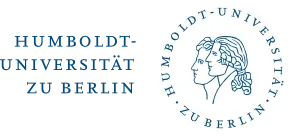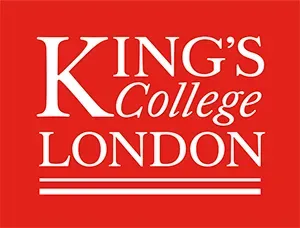RAI4KG is led by Albert Meroño Peñuela, a Senior Lecturer at King’s College London. We’ve asked him to share some insights about his project and what he is aiming to achieve this year. Let’s have a closer look at RAI4KG.
What is your project about?
RAI4KG is an interdisciplinary workshop addressing a critical challenge in artificial intelligence: ensuring the responsible use of generative AI in knowledge graph development. As large language models increasingly automate knowledge graph creation (traditionally requiring skilled knowledge engineers and domain experts) concerns about accuracy and trustworthiness have become critical, particularly in high-risk domains.
The workshop brings together an international community of experts in computer science, computational linguistics, and domain-specific fields to examine this multifaceted issue from technical, ethical, and practical perspectives. Organised by researchers from the University of Vienna, King's College London, and Aarhus University, the event features keynote presentations, expert panels, and interactive sessions designed to foster collaboration across disciplines.
The project has three objectives: assemble a global community around responsible AI and knowledge graphs, disseminate novel research in this space, and facilitate collaboration on larger research initiatives. Beyond the workshop, RAI4KG aims at producing a white paper with policy recommendations for organisations like the EU AI Office, and establishing an interdisciplinary network of scholars. Ultimately, the project seeks to create an actionable framework for responsible AI-driven knowledge graph generation, while increasing collaboration across fields for developing trustworthy AI systems.
Why is this topic important?
The rise of large language models and generative AI is fundamentally transforming how knowledge graphs are designed and constructed. Traditionally, skilled knowledge engineers manually built these graphs, ensuring accuracy and reliability. However, automation is reducing human involvement, raising critical concerns about the correctness of knowledge automatically introduced into these systems.
This issue is especially vital in high-risk interdisciplinary domains such as healthcare, where the ability to rely on and trust AI's decision-making is paramount. Incorrect or biased information in knowledge graphs can have serious consequences, affecting everything from medical diagnoses to policy recommendations.
Beyond technical accuracy, the responsible use of AI in knowledge graph development involves broader considerations spanning ethics, law, and social impact. Different stakeholders (from technologists to policymakers to domain experts) must collaborate to establish shared principles and practices.
Currently, there is no comprehensive framework addressing how to responsibly harness generative AI for knowledge graphs while maintaining data integrity and trustworthiness. RAI4KG fills this gap by bringing together diverse perspectives to create actionable guidelines for organisations, raise awareness about this critical intersection of AI and knowledge management, and establish foundations for future collaborative research on responsible AI development at scale.
What are you aiming to achieve with this project over the year?
The primary activity is organising a hybrid workshop, co-located with a prestigious international conference to maximise visibility and impact. The event will feature keynote presentations from leading experts, separate tracks dedicated to information retrieval, knowledge graphs, and domain-specific discussions, and interactive sessions bringing together researchers, students, and professionals from academia, industry, and government.
During the workshop, participants will engage in collaborative brainstorming sessions and panel discussions focused on distilling lessons learned across disciplines and defining what responsible AI for knowledge graphs means from multiple perspectives.
Beyond the workshop itself, we aim to produce several tangible outputs. These include a comprehensive white paper with policy recommendations targeted at influential organisations such as the EU AI Office and the UK's AI Policy Directorate. The workshop sessions will be recorded and made publicly available, extending the reach beyond in-person attendees.
Critically, RAI4KG seeks to establish a lasting interdisciplinary network of scholars who will continue collaborating beyond the workshop. This network will work toward developing an actionable framework for responsible AI-driven knowledge graph generation. The long-term vision extends to securing larger EU Horizon funding (€3.5-4 million) for expanded research initiatives, building on the workshop's foundation and collaborative relationships.
Explain in which way your project has an interdisciplinary approach.
RAI4KG has interdisciplinarity in its core, recognising that responsible AI for knowledge graphs cannot be addressed from a single perspective. The project integrates expertise from computer science (semantic web, machine learning, generative AI, privacy, etc) with computational linguistics, particularly natural language processing techniques for information extraction. Domain specialists bring critical contextual knowledge about how AI systems are evaluated and applied in real-world settings.
Interdisciplinarity is essential because responsible AI inherently spans multiple fields. Technical solutions alone are insufficient; the project must also grapple with ethical and legal implications, and societal impact. By bringing diverse experts together, we create opportunities for methodological combinations, and raise collective awareness about the complexity of using AI for knowledge graphs.
The workshop facilitates interdisciplinary collaboration by allowing specialists to engage deeply within their fields, followed by joint discussion panels where insights are shared across communities. Interactive brainstorming sessions explicitly invite participants to draw on approaches from multiple disciplines to derive insights.
Furthermore, the ontology development process at the heart of knowledge graphs incentivates knowledge exchange between disciplines, through domain experts and ontology engineer dialogue. We also advocate for data-centric approaches emphasising FAIR principles (findable, accessible, interoperable, reusable), which facilitate reusability at scale across diverse research communities.









